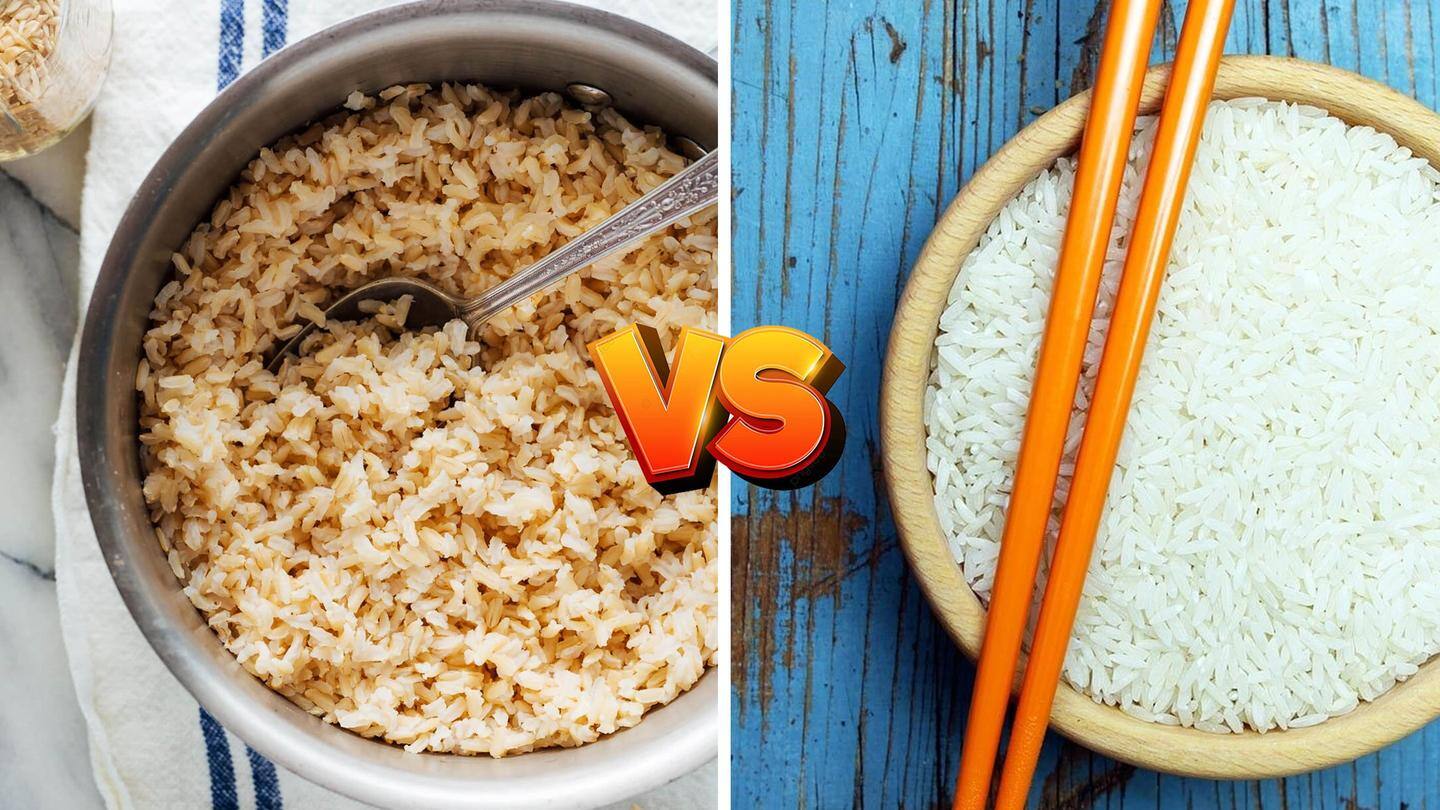
Is brown food necessarily healthier than white? Here's our take
What's the story
We have heard several times that brown bread is better than white bread, or brown rice is better than white rice.
This is because brown is considered to contain more fiber and isn't refined as much.
Several people have made the switch, but should you do the same?
Let's analyze how a brown food item differs from its white counterpart and its health advantages.
Context
Here is what our expert says
A whole grain like brown rice has three layers--outermost is bran which is rich in fiber, next is the germ that is packed with vitamins, minerals and phytonutrients, innermost is the endoderm which is mostly starch.
Brown rice is a low glycemic index food, advised for maintaining sugar levels in diabetics. It also helps lower cholesterol and reduces the risk of heart attack.
#1
Brown rice vs white rice
Rice is a major source of carbohydrates and a staple in several parts of the country.
The standout difference between brown and white rice is the amount of fiber.
The bran and germ layers in brown rice remain intact, while white rice doesn't have these.
This makes brown rice more nutritious and fibrous.
But it takes longer to cook, while white rice cooks quicker.
#2
Brown bread vs white bread
When talking about brown bread and white bread, the difference again comes down to the amount of bran.
The bran offers magnesium, potassium, zinc, phosphorous, and several vitamins.
White bread is devoid of fiber as it is made up of highly-processed flour, while brown bread is made of whole wheat flour.
The minerals and vitamins are often synthetically added to white bread.
#3
Brown sugar vs white sugar
Brown sugar is only slightly healthier than white sugar.
Brown sugar is a combination of white sugar and molasses, contains a little more minerals, and has lesser calories than white sugar.
However, the difference is not huge and both should be consumed in moderation.
Jaggery is a better alternative to white sugar because the sweetness is unrefined in jaggery and retains more nutrients.
#4
Brown eggs vs white eggs
It is important to note that the breed of hen decides the color of its eggs.
Studies have asserted that there isn't any significant difference between brown shell eggs and white eggs.
But a hen's diet and environment can influence an egg's nutrition.
For example, eggs that come from hens that roam out in sunlight contain a higher amount of vitamin D.
Conclusion
The other side of the coin
Although brown rice and brown bread are known to be healthier alternatives, they have a few demerits as well.
For instance, the bran in brown rice can create problems in the digestive system which can lead to constipation and bloating.
Brown rice has an anti-nutrient known as phytic acid which decreases the ability of your body to absorb zinc and iron from food.